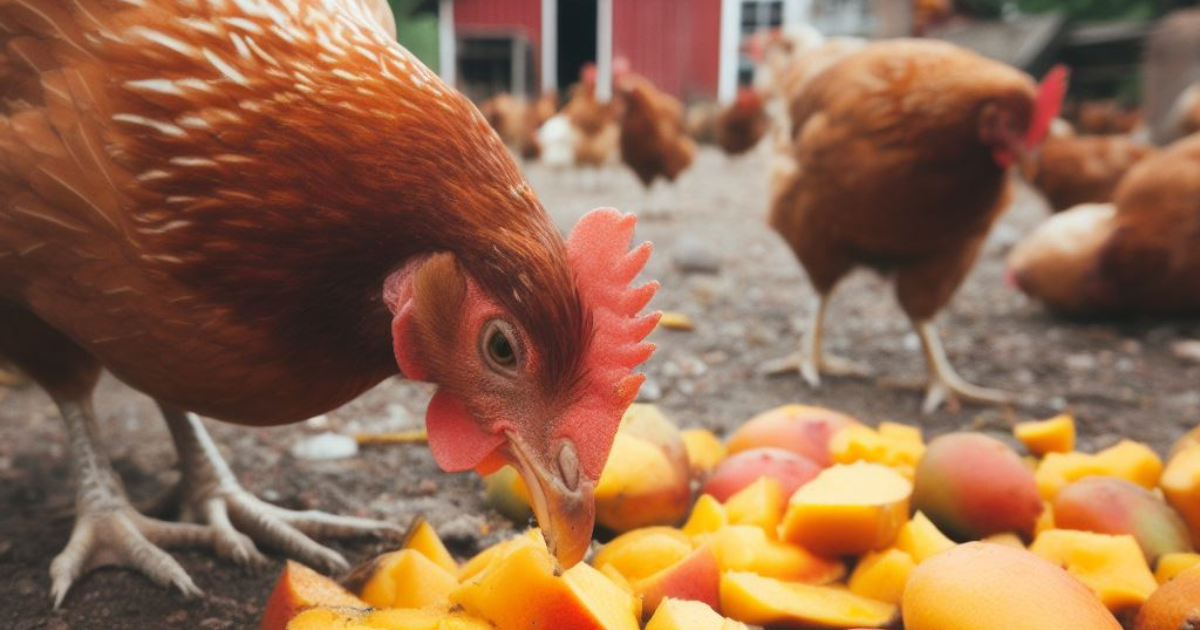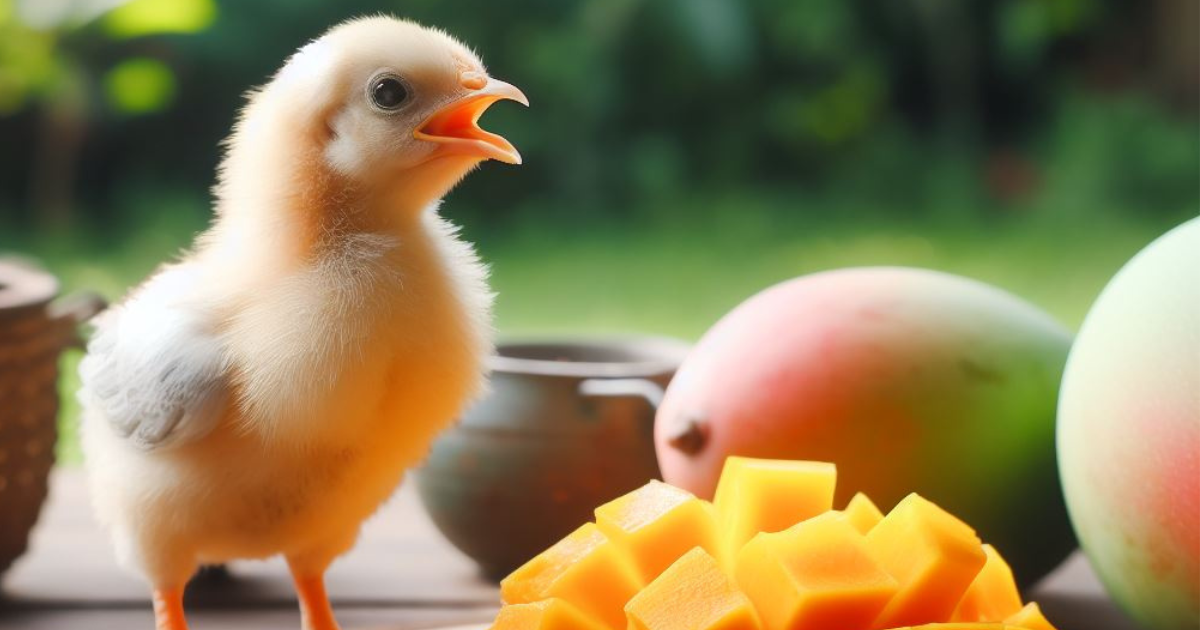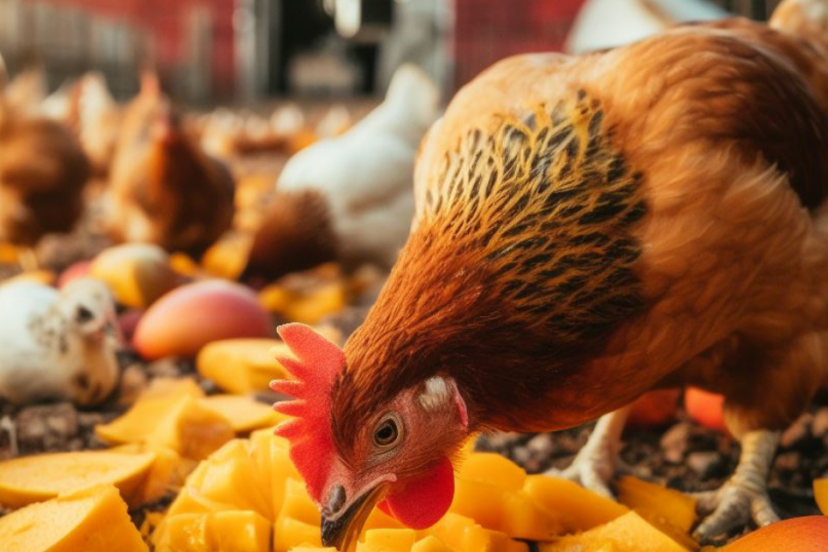Can Chickens Eat Mango? Is Mango for Chickens?
I am often asked about suitable foods for chickens. One fruit that often comes up in these discussions is mango. Mangoes are not only a delicious and juicy treat for humans but can also be a delightful addition to a chicken’s diet. In this article, we will explore the nutritional value of mango for chickens, address the question of whether chickens can eat mango, discuss the benefits of feeding mango to chickens, and provide practical tips on how to incorporate mango into their diet.
The Nutritional Value of Mango for Chickens
Mangoes are a treasure trove of essential nutrients that can support the overall health and well-being of your chickens. They are rich in vitamins, particularly vitamin C, which can boost their immune system and help fight off infections. Mangoes also provide a good dose of vitamin A, which is essential for healthy vision and reproductive functions in chickens. Additionally, mangoes contain dietary fiber, potassium, and antioxidants, all of which contribute to their nutritional value.
Can Chickens Eat Mango?
The answer is a resounding yes! Chickens can indeed enjoy the sweet and tangy goodness of mangoes. However, there are a few factors to consider before adding mango to their diet.
Factors to Consider: Can Chickens Eat Mango?

When offering mango to chickens, it is important to consider their age, overall diet, and the quantity of mango being given. Young chickens should be introduced to mango gradually, while adult chickens can enjoy it in moderation. It is essential to remember that mango should not replace their staple diet of grains and protein-rich feed.
Risks and Precautions
While mangoes are generally safe for chickens, there are a few precautions to keep in mind. The skin and pit of the mango should be avoided as they can pose a choking hazard and contain substances that may be harmful to chickens. It is best to remove the skin and pit, and only offer the flesh of the mango to your feathered friends.
Benefits of Feeding Mango to Chickens
Including mango in your chickens’ diet can provide several benefits that go beyond just a tasty treat. Here are some reasons why you might consider feeding mango to your chickens:
- Nutritional Boost: Mangoes offer a wide range of essential vitamins and minerals that can enhance the overall nutritional profile of your chickens’ diet. It has been scientifically proven that Mangoes improve Broiler weight mass.
- Hydration: Mangoes have a high water content, which can help keep your chickens hydrated, especially during hot summer months.
- Waste Reduction: Feeding mangoes to your chickens can help reduce food waste by utilizing excess or overripe mangoes that might otherwise go to waste.
How to Feed Mango to Chickens

Feeding mango to chickens is a simple and enjoyable process. Here are some tips to help you incorporate mango into their diet:
- Preparation: Start by selecting ripe mangoes. Wash the mangoes thoroughly and remove the skin and pit. Chop the flesh into small, manageable pieces.
- Serving: Offer the chopped mango as a treat to your chickens. You can hand-feed them or scatter the mango pieces in their feeding area. Monitor their consumption to ensure they don’t overindulge.
- Moderation: While chickens can enjoy mangoes, it is important not to overfeed them. Mango should be given as an occasional treat and should not replace their regular balanced diet.
Other Fruits and Vegetables Suitable for Chickens
In addition to mangoes, there are several other fruits and vegetables that can be beneficial for chickens. Consider adding these to their diet:
- Apples: Rich in vitamins and minerals, apples make a crunchy and nutritious treat.
- Berries: Strawberries, blueberries, and raspberries are packed with antioxidants and can be a tasty addition to their diet.
- Leafy Greens: Spinach, kale, and lettuce offer essential nutrients and can be provided in small quantities.
- Cucumbers: Cucumbers are hydrating and refreshing for chickens, making them an ideal summer snack.
Conclusion: So Can Chickens Eat Mango?
Mangoes can be a delightful and nutritious addition to your chickens’ diet. They offer a range of vitamins, minerals, and antioxidants that can contribute to their overall well-being. Remember to introduce mangoes gradually, remove the skin and pit, and offer them in moderation as a treat. By incorporating mangoes and other suitable fruits and vegetables into their diet, you can provide your chickens with a varied and balanced meal that promotes their health and happiness.
FAQs
1. Can chickens eat mango skin?
No, it is best to remove the skin of the mango before feeding it to chickens. The skin can be tough to digest and may pose a choking hazard.
2. How often can I give mango to my chickens?
Mango should be given as an occasional treat and not as a staple part of their diet. Offer mangoes in moderation, once or twice a week.
3. Can mangoes cause diarrhea in chickens?
While mangoes are generally safe for chickens, excessive consumption can lead to loose stools. Moderation is key to avoid any digestive issues.
4. Can chickens eat mango leaves?
No, mango leaves are not suitable for chickens and should be avoided. Stick to feeding them the ripe flesh of the mango.
5. Are all mango varieties safe for chickens?
Most mango varieties are safe for chickens to consume. However, it is important to always provide ripe mangoes and avoid feeding unripe or spoiled mangoes.
*We may earn a commission from purchases made through our links, at no cost to you. This does not affect our product recommendations. Please see our disclosure to learn more.




